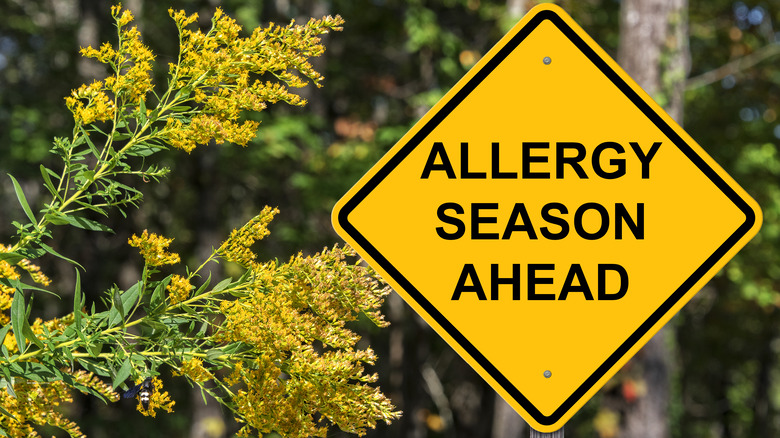Why Experts Say Spring Allergies May Come Back To Life Earlier This Year
While spring might be a welcome time of year after a long and cold winter, it also means allergy season is back. Allergies are triggered mainly by pollen being released into the air by flowers, trees, weeds, and other plants as their buds open. According to Gardening Know How, pollen is necessary for plants to reproduce, and pollination is necessary for their survival. Pollination is also an important factor in creating our fresh produce. However, pollen triggers allergies for many people. If you're familiar with these triggers, you know just how difficult allergy season can be.
According to Prevention, allergy season usually begins in March and can last through June. That said, allergy season varies depending on what you're allergic to. The University of Maryland Medical System explains that tree pollen can be in the air as early as February, and weed pollen is in the air during summer and even the early months of fall.
The allergy season is lasting longer
While we know that the weather affects allergy season, it might also be extending how long the season lasts. A study published in Proceedings of the National Academy of Sciences revealed that the Earth's changing climate might be to blame. Research showed that pollen concentrations are on the rise, and in North America, pollen counts are up by 21%. In addition, the allergy season lasts 20 days longer than it did in 1990. Researchers concluded that along with warmer temperatures, the amount of carbon dioxide in the air made allergy season more intense. More carbon dioxide in the air causes plants to bloom more, which releases more pollen into the air.
This research backs up a 2010 report published by the Asthma and Allergy Foundation of America (AAFA) that showed how the changing climate affects everything from pollen and fungal spores in the air, which can cause allergic and asthmatic reactions.
Thankfully, treatments like antihistamines, decongestants, and allergy shots make allergy season tolerable for those who suffer the most. The AAFA also recommends staying on top of pollen counts in your area, keeping windows closed, and staying inside from 10 a.m. to 2 p.m. on days when counts are high.


